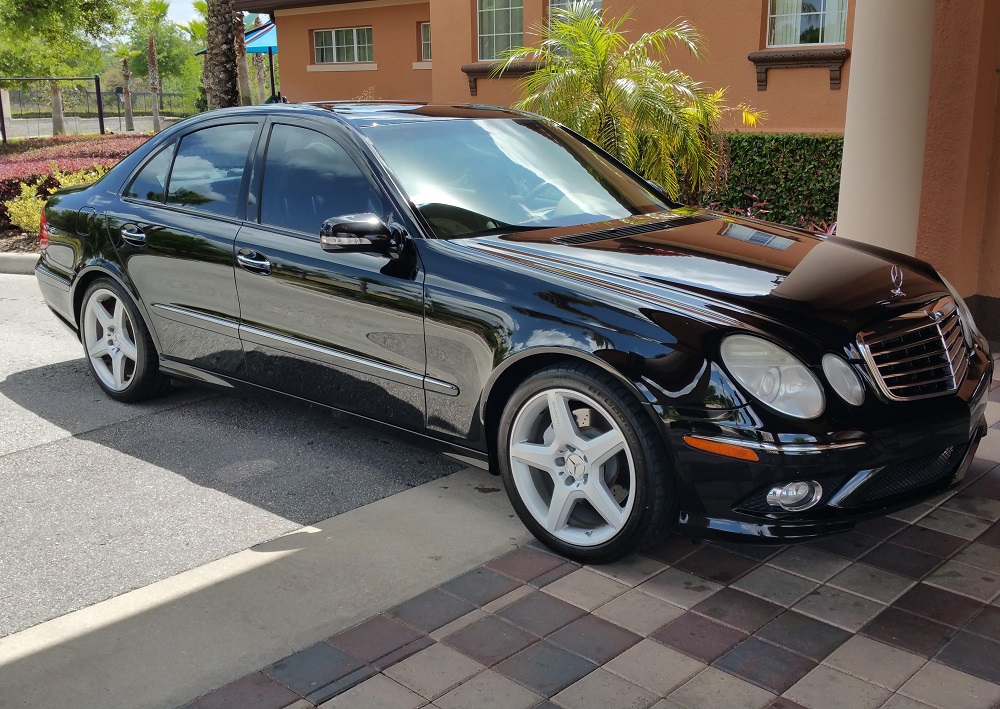When it comes to maintaining the aesthetic appeal and protection of our beloved vehicles, ceramic coating has emerged as a game-changer. Offering a glossy finish, water repellency, and a shield against environmental contaminants, ceramic coatings have become the go-to choice for car enthusiasts. However, a lingering question echoes in the minds of many: “Does alcohol remove ceramic coating?” In this comprehensive guide, we’ll navigate through the intricacies of ceramic coatings, explore the relationship with alcohol, and provide practical tips for preserving your car’s shine.
Understanding the Essence of Ceramic Coating
Decoding Ceramic Coating
Ceramic coating is a liquid polymer applied to a vehicle’s exterior surfaces. Once cured, it forms a protective layer that enhances the car’s appearance and provides defense against the elements. The unique chemical composition of ceramic coatings contributes to their durability, making them a preferred option for those seeking long-lasting protection.
Debunking Myths: Does Alcohol Truly Pose a Threat?
The Composition Conundrum
1. The Resilience of Ceramic Coating
One of the hallmarks of ceramic coatings is their chemical resilience. Engineered to withstand a range of environmental challenges, these coatings offer a robust defense against elements such as UV rays, bird droppings, and water spots.
2. Types of Alcohol and Their Varied Effects
Not all alcohols are created equal, and understanding their impact on ceramic coatings requires a nuanced approach. Isopropyl alcohol, commonly used in household cleaners, may raise concerns among car owners. However, the extent of its impact depends on factors such as concentration and duration of exposure.
The Intersection of Alcohol and Ceramic Coating
Unraveling the Effects
1. Short-Term Exposure: A Tolerable Encounter
For those occasional spills or inadvertent splashes of alcohol, the news is generally positive. Ceramic coatings are designed to withstand minor chemical interactions, and short-term exposure is unlikely to compromise their integrity.
2. Prolonged or Concentrated Exposure: A Cause for Caution
While the resilience of ceramic coatings is noteworthy, prolonged or concentrated exposure to alcohol is a different scenario. High concentrations of alcohol over an extended period may gradually break down the coating, compromising its effectiveness.
Navigating the Maintenance Maze
Strategies for Longevity
1. Opt for Gentle Cleaning Solutions
When it comes to maintaining ceramic-coated surfaces, choosing the right cleaning solutions is crucial. Opt for mild, pH-neutral options to ensure effective cleaning without risking adverse reactions with the coating.
2. Regular Inspection: A Preventive Measure (See Also: Removing Duct Tape Residue from Your Car: The Best Methods)
Proactive maintenance involves regular inspections of your ceramic-coated surfaces. Pay special attention to areas that receive maximum exposure, such as the hood and roof. Timely identification of any signs of wear or damage allows for prompt intervention, preventing potential issues from escalating.
Beyond Alcohol: Tips for a Lasting Shine
Comprehensive Care
Preserving your car’s shine involves more than steering clear of specific substances. Adopting a holistic approach to car care ensures the longevity of ceramic coatings. Consider these additional tips:
1. Avoid Abrasive Materials: When washing your car, opt for soft microfiber towels and gentle cleaning tools to prevent scratches and abrasions that can affect the coating.
2. Regular Washing: Establish a routine for washing your ceramic-coated vehicle to remove dirt, pollutants, and contaminants before they have a chance to compromise the coating.
3. Professional Application: Ensure that the ceramic coating is applied by a qualified professional. Proper application plays a significant role in the coating’s effectiveness and longevity.
Expert Tips for Maximizing Your Ceramic Coating’s Lifespan
Ensuring the longevity of your car’s ceramic coating involves more than just avoiding potential threats. Adopting expert-recommended practices can significantly contribute to preserving the shine and protective qualities of your coating. Here are some invaluable tips from automotive specialists:
1. Schedule Regular Maintenance Inspections
Regularly inspecting your ceramic-coated surfaces is a proactive measure that can catch potential issues before they escalate. Look out for any signs of wear, damage, or areas requiring touch-ups. Timely intervention ensures your coating remains effective in safeguarding your vehicle.
2. Choose pH-Neutral Cleaning Products
The choice of cleaning products plays a pivotal role in maintaining your ceramic coating. Opt for pH-neutral cleaners that are gentle on the coating while effectively removing dirt and contaminants. Harsh chemicals can compromise the coating’s integrity over time.
3. Employ the Two-Bucket Washing Method
Minimize the risk of introducing swirls and scratches to your ceramic-coated finish by adopting the two-bucket washing method. Use one bucket for soapy water and another for rinsing your wash mitt. This prevents dirt from being reintroduced to the surface during the cleaning process.
4. Use Quality Microfiber Towels
When drying or applying detailing products to your ceramic-coated car, invest in high-quality microfiber towels. These towels are gentle on the surface, preventing scratches and ensuring a smooth finish.
5. Seek Professional Application and Maintenance
The expertise of professionals in applying and maintaining ceramic coatings cannot be overstated. Opt for certified and experienced technicians for the initial application, and consult them for periodic maintenance. Their insights can enhance the coating’s durability and effectiveness.
6. Avoid Automated Car Washes with Harsh Chemicals
While convenience is tempting, automated car washes that use harsh chemicals can be detrimental to ceramic coatings. Opt for hand washing or touchless car washes to minimize the risk of abrasive chemicals compromising your coating. (See Also: Can You Use Spray Wax on Ceramic Coating? Expert Tips for Ultimate Car Shine)
7. Consider Ceramic Coating Boosters
Ceramic coating boosters are specialized products designed to refresh and enhance the protective qualities of your existing coating. Incorporate these boosters into your maintenance routine to extend the lifespan of your ceramic coating.
8. Store Your Vehicle in a Covered Environment
Exposure to the elements, especially harsh sunlight and inclement weather, can accelerate wear on your ceramic coating. Whenever possible, park your car in a covered environment to shield it from the elements and preserve the coating’s integrity.
9. Address Contaminants Promptly
Bird droppings, tree sap, and other contaminants can pose a threat to your ceramic coating if left unattended. Address these issues promptly with gentle cleaning methods to prevent prolonged exposure and potential damage.
10. Educate Yourself on Product Specifics
Not all ceramic coatings are created equal. Familiarize yourself with the specifics of the coating applied to your vehicle. Different products may have unique care requirements, and understanding these nuances can guide your maintenance efforts effectively.
Implementing these expert tips ensures that your ceramic coating not only withstands potential threats but also thrives, providing your vehicle with enduring protection and a stunning finish.
FAQs: Navigating the Ceramic Coating Maze
Ceramic coating is a topic that often sparks curiosity and questions among car enthusiasts. To help you navigate through common queries and dispel uncertainties, here are some frequently asked questions about ceramic coating, along with expert answers:
1. Does Alcohol Really Remove Ceramic Coating?
Answer: Short-term exposure to alcohol is generally tolerable for ceramic coatings. However, prolonged or concentrated contact may compromise the coating’s effectiveness over time. It’s advisable to exercise caution and prioritize gentle cleaning practices.
2. How Long Does Ceramic Coating Last?
Answer: The longevity of ceramic coating varies based on factors such as the product used, application quality, and maintenance. On average, a well-applied ceramic coating can last anywhere from two to five years. Regular maintenance enhances its lifespan.
3. Can I Apply Ceramic Coating Myself?
Answer: While DIY ceramic coating kits are available, professional application is recommended for optimal results. Certified technicians have the expertise to ensure thorough and even coverage, maximizing the coating’s effectiveness.
4. Does Ceramic Coating Prevent Scratches?
Answer: While ceramic coatings offer a level of scratch resistance, they are not impervious to all scratches. They provide a sacrificial layer that absorbs light scratches, but deep scratches may still occur. Adopting careful washing practices can minimize the risk.
5. How Soon Can I Wash My Car After Ceramic Coating Application?
Answer: The curing time for ceramic coatings varies, but a common recommendation is to avoid washing the car for at least 48 hours after application. Follow the specific guidelines provided by the coating manufacturer or your application professional. (See Also: Can You Use Glass Cleaner on Car Paint? Tips and Risks Explained)
6. Can I Wax My Car Over Ceramic Coating?
Answer: Waxing is not necessary for ceramic-coated vehicles, as the coating provides its own protective layer. Applying wax can be counterproductive, as it may interfere with the ceramic coating’s bonding and performance.
7. Do I Need to Reapply Ceramic Coating?
Answer: Ceramic coatings degrade over time due to exposure to the elements. Reapplication is typically required every two to five years, depending on factors such as environmental conditions and maintenance practices.
8. Can I Use Any Car Shampoo on a Ceramic-Coated Car?
Answer: While ceramic coatings are resilient, it’s advisable to use pH-neutral and non-abrasive car shampoos. Harsh or acidic cleaners can compromise the coating’s integrity, diminishing its protective qualities.
9. Does Ceramic Coating Make My Car Maintenance-Free?
Answer: While ceramic coatings significantly reduce the effort required for maintenance, they do not make your car entirely maintenance-free. Regular washing and periodic inspections are still essential to ensure the coating’s effectiveness.
10. Can I Apply Ceramic Coating on Matte Finishes?
Answer: Yes, ceramic coatings are suitable for matte finishes. However, it’s crucial to use coatings specifically designed for matte surfaces to maintain the desired appearance. Follow the product recommendations for optimal results.
Feel free to reach out to professionals or refer to the product guidelines for personalized advice based on your specific situation. These FAQs aim to provide general insights into the world of ceramic coatings, empowering you to make informed decisions about your car’s care.
Conclusion: A Roadmap to Shine
In conclusion, the relationship between alcohol and ceramic coating is complex, with factors such as concentration and duration influencing the outcome. While short-term exposure is generally tolerable, a cautious approach is advisable when dealing with prolonged or concentrated contact.
Remember, the journey to preserving your car’s shine extends beyond the alcohol conundrum. Regular care, attention to detail, and adherence to best practices form the pillars of ceramic coating longevity. So, embrace the open road with confidence, knowing that your ceramic-coated vehicle is equipped to shine through the miles.
Disclaimer: This article provides general information and recommendations. For specific concerns or unique situations, consult with automotive experts for personalized advice.



